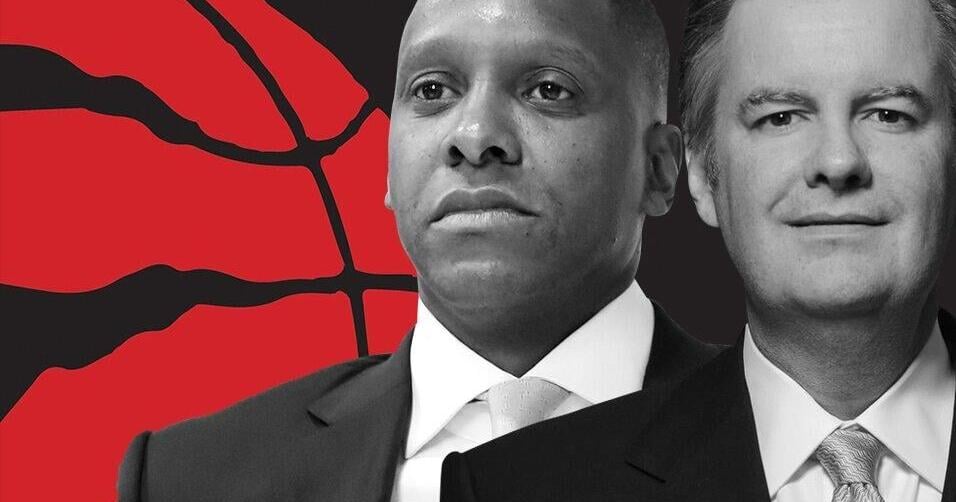He doesn’t officially have majority control of Maple Leaf Sports & Entertainment yet, but the fingerprints of Edward Rogers are all over the decision to part ways with Raptors president Masai Ujiri, experts say.
The stunning announcement Friday that the organization has parted ways with the executive who brought an NBA title to Toronto comes just days ahead of the official closing of a deal that will see Rogers Communications take over the 37.5 per cent MLSE stake formerly held by BCE.
The timing is no coincidence, says sports business consultant and former MLSE president Richard Peddie.
“I don’t think it’s a coincidence that Rogers is about to take over,” said Peddie, who was MLSE president from 1998 through 2011. “Ed Rogers has got a track record. He runs things. It’s in the Rogers DNA.”
Glenn Rowe, a professor at Western University’s Ivey School of Business, said that even though the deal hasn’t officially closed, the move wouldn’t have happened without Edward Rogers’ awareness, and his company will soon own a controlling share of MLSE.
Taking over BCE’s stake will give Rogers Communications 75 per cent of the company, which owns the Toronto Maple Leafs, the Toronto Raptors, Toronto FC and Toronto Argonauts. The remaining 25 per cent will be controlled by Kilmer Sports, the sports business arm of Larry Tanenbaum’s Kilmer Group. (The Ontario Municipal Employees Retirement System, known as OMERS, owns a 20 per cent stake in Kilmer Sports.)
Rogers also owns the Toronto Blue Jays, which aren’t part of MLSE.
In a written statement, a Rogers Communications spokesperson said the deal to take over as majority owner hasn’t officially closed, and said MLSE president Keith Pelley made the decision with the support of the company’s board of directors.
“As Keith Pelley said, the Board supported his decision. Masai Ujiri has had a big impact on the Raptors, and we wish him all the best,” the Rogers spokesperson said.
A spokesperson for BCE confirmed that the takeover hasn’t officially closed.
“We previously indicated that we expect to close mid-year 2025 and we’re on track to close within that time frame,” the BCE spokesperson said in a written statement.
Neither Kilmer Sports nor OMERS would comment on the decision to part ways with Ujiri.
For Tanenbaum, who often played the role of peacemaker or tiebreaker between the archrival telecommunications giants, the decision to get rid of Ujiri is likely a taste of what’s to come once the Rogers takeover is official, said Ivey’s Rowe.
“He could go from being the chair of the MLSE board to being a minority shareholder who doesn’t even had a board seat,” said Rowe. Tanenbaum is also the current chair of the NBA’s board of directors.
As reported by the Star in 2021, Tanenbaum agreed with BCE’s representatives at MLSE to re-sign Ujiri, over the objections of Edward Rogers, who felt the contract agreement was too lucrative.
Ujiri’s 2021 contract, for $15 million per season, also included incentive pay tied to a future increase in the franchise value of the Raptors, the Star reported.
Still, despite board-level manoeuvring and alliances, there’s a much simpler explanation for why Ujiri is no longer with the Raptors, said Chicago-based sports business consultant Marc Ganis.
“If the Raptors were seventh in the league in wins instead of 23rd, he’d be a lot more likely to still be around,” said Ganis. “Even with any differences there may have been, winning takes care of a lot. And they just haven’t been winning a lot lately.”
The Raptors and MLSE, however, could regret parting ways with the widely-respected Ujiri, said Peddie.
“Firing somebody is easy. Hiring somebody good is hard,” said Peddie. “You’re sitting there thinking ‘I’m going to get rid of Masai.’ Do you really think you’re gonna get someone better? The odds are you are not.”



